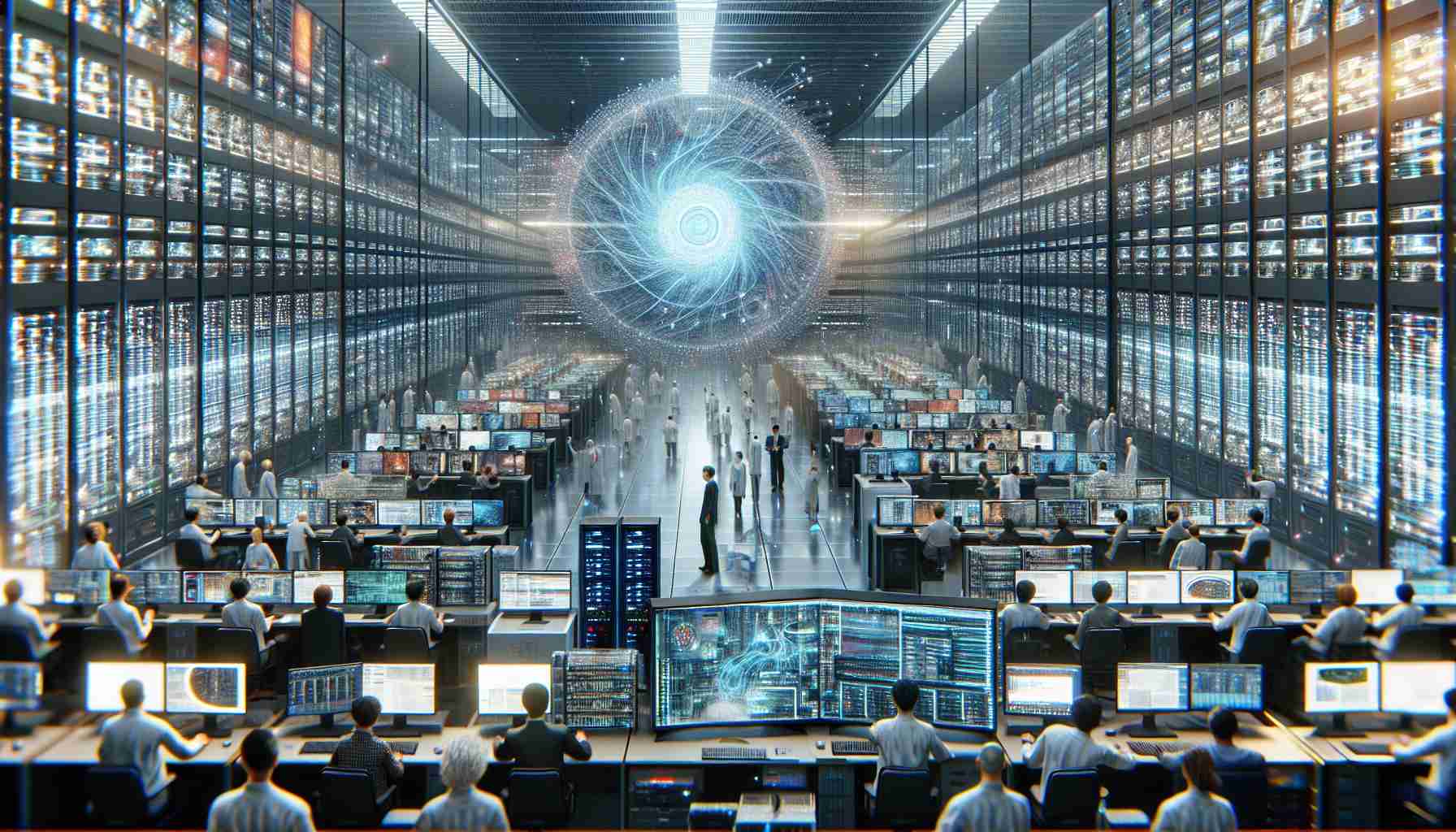The Japanese Ministry of Industry has announced a substantial investment to advance domestic artificial intelligence (AI) technologies. On Friday, the ministry disclosed a plan to fund the construction of supercomputers with an allocation of up to 72.5 billion yen, approximately 470 million US dollars, across five AI projects.
The ministry’s initiative is specifically designed to stimulate the local development of generative AI systems, by enhancing the computational infrastructure within Japan. Generative AI, known for its capacity to autonomously create text and images, is rapidly gaining traction. Despite this, the domestic industry is heavily reliant on US tech companies for the creation of supercomputing resources and other infrastructure.
Sakura Internet, an IT company, is set to receive the largest portion of the funding, amounting to 326 million dollars. It is followed by telecommunications company KDDI, which will receive 66 million dollars. Highreso, which provides cloud services, will be granted 50 million dollars.
These companies will be required to allow AI developers access to these supercomputing facilities for a minimum of three years. For KDDI, this marks their first foray into establishing a large-scale computing infrastructure tailored for AI development, indicating a significant strategic move in the tech landscape.
This sponsorship from the Japanese government represents a proactive step towards reducing Japan’s dependency on foreign technology in the realm of AI while fostering local innovation in a field that is becoming increasingly integral to technological progress worldwide.
Important Questions and Answers:
1. Why is the Japanese Ministry of Industry investing in AI supercomputing projects?
The investment is part of a strategic effort to advance domestic artificial intelligence technologies and reduce Japan’s reliance on foreign tech companies for supercomputing resources. By enhancing their computational infrastructure, Japan aims to stimulate local development, particularly in generative AI systems.
2. What are the key challenges associated with these supercomputing projects?
Challenges include ensuring that the supercomputers built with this investment are competitive with international standards, maintaining and updating the infrastructure, and fostering an ecosystem where both the technology and the skilled workforce to utilize it are present. Moreover, ensuring data security and managing the ethical implications of AI are also significant challenges.
3. Are there any controversies surrounding these investments?
There might be concerns regarding how the government selects companies to receive funding and the potential for creating imbalances in the competitive market. Additionally, discussions about the ethical use of AI and how data is handled might arise as development progresses.
Advantages and Disadvantages:
Advantages:
– Fostering Innovation: With its own advanced computational infrastructure, Japan can stimulate innovation in AI, especially in generative AI, which is poised to revolutionize various industries.
– Reduction of Dependency: Building supercomputing capabilities locally can reduce dependence on foreign tech companies.
– Economic Growth: Investments in AI can lead to economic benefits through the creation of new industries and job opportunities.
Disadvantages:
– High Costs: The initial investment is substantial, and there’s no guaranteed immediate return on investment.
– Risk of Failure: Investments in technology can sometimes fail to meet expectations due to technical challenges or market conditions.
– Ethical and Security Concerns: The increase in AI capabilities must be matched with appropriate ethical guidelines and data security measures.
For more information on the Japanese efforts in supercomputing, you can visit:
– Ministry of Economy, Trade and Industry (METI)
– Sakura Internet
– KDDI Corporation
Please note that the URLs provided are domains that are suggested for broader information on the companies and the ministry involved. Before the interest in generative AI and the move towards building supercomputing resources, Japan has been known for its advancements in robotics and automation, which provides a solid foundation for growth in the field of AI.

